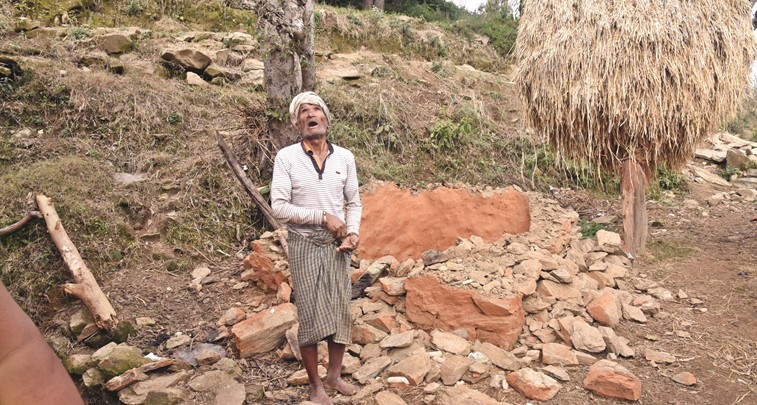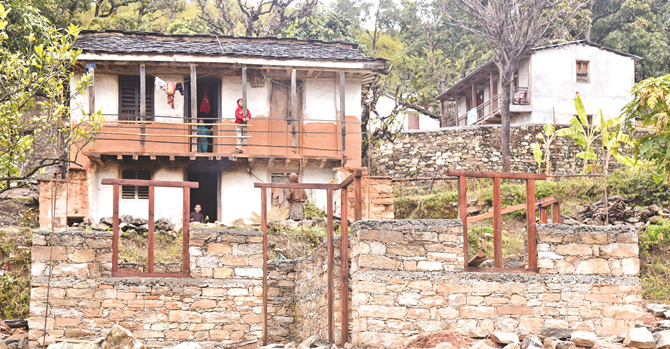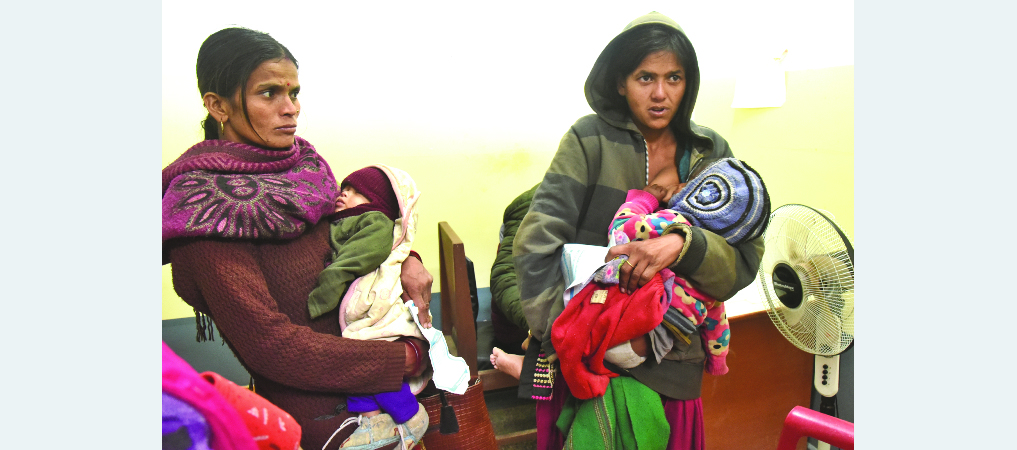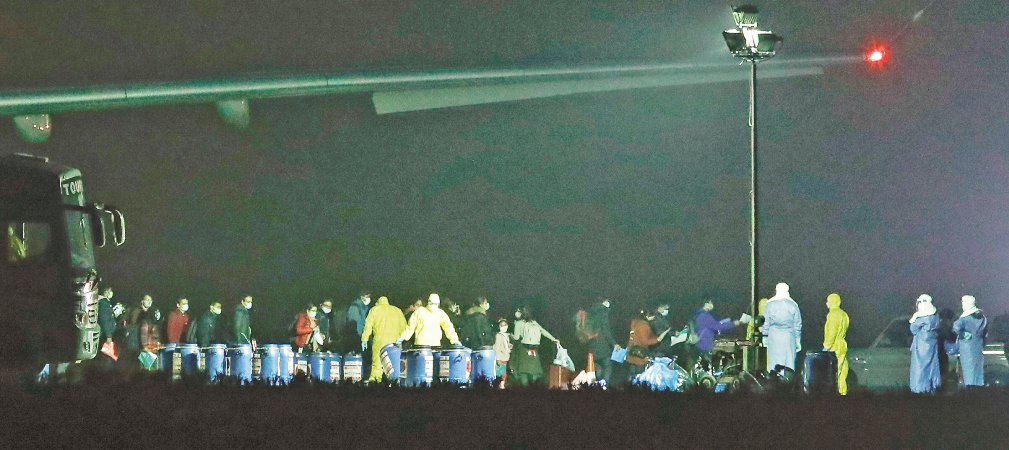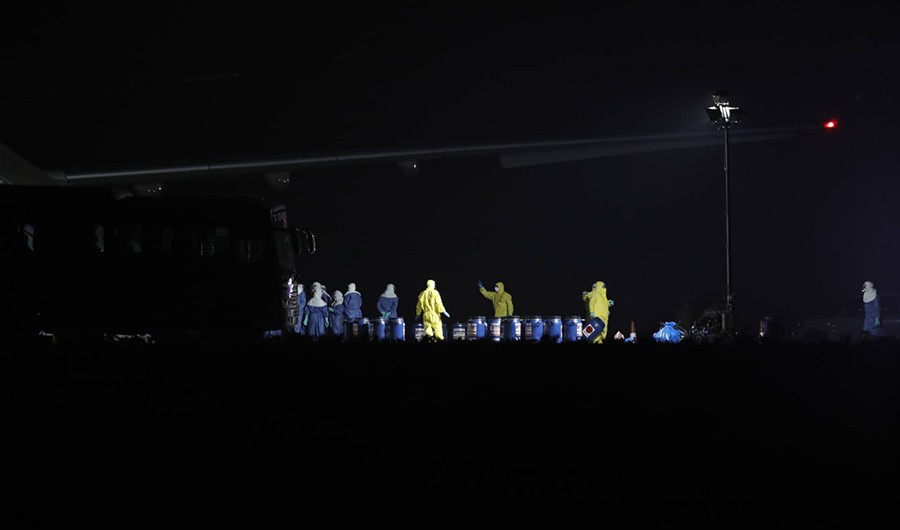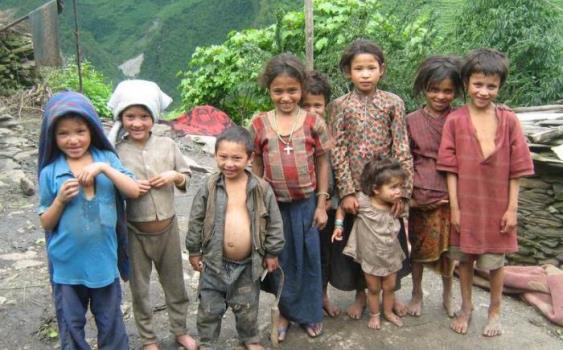Encouraging Breastfeeding: Shared Responsibility Essential
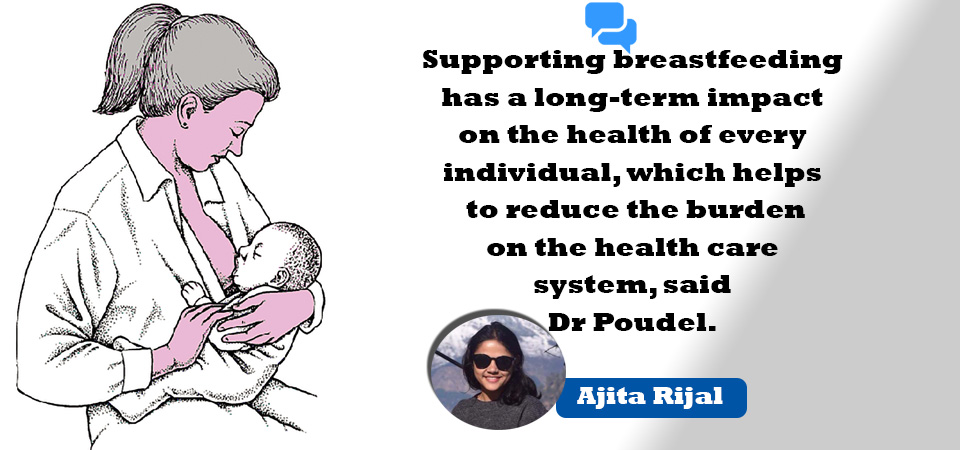
Ajita Rijal
Every year, the first week of August is celebrated as World Breastfeeding Week. This year the world is celebrating the week with the theme, 'Protect Breastfeeding: A Shared Responsibility' as health experts are calling on all stakeholders to encourage mothers for optimal breastfeeding practices.
Breastfeeding within the first hour of birth, exclusively breastfeeding infants for the first six months and continuing for up to two years and beyond, would help protect infants from various illnesses.
As per Nepal Demographic Health Survey 2016, infant and young child feeding practices are sub-optimal, with about 65 per cent exclusively breastfed for six months and about 55 per cent colostrums fed within an hour of birth.
Only 41 per cent of children aged 4–5 months were exclusively breastfed, compared to 80 per cent in 0–1 months and 72 per cent in 2–3 months. However, all infants had received at least some breast milk by 4–5 months of age. However, according to Nepal Multi-Indicator Cluster Survey (MICS) 2019, about 42 per cent of colostrums are fed within an hour of birth and 62 per cent exclusively breastfed under 6 months. According to the survey, 87.6 per cent breastfed for a full term.
The national survey shows that breastfeeding culture and frequency are decreasing due to various reasons. In 2011, it was reported that 70 per cent of mothers breastfeed. In 2016, it decreased to 66 per cent and in 2019; it reached 62 per cent, which is a matter of concern in children's health.
Breastfeeding is the best source of nourishment for infants and young children and a proven lifesaving strategy that helps protect children against many illnesses. Breastfeeding is the best and most natural vaccine that develops the immune system of a baby, said Dr Kedar Raj Parajuli, chief of the Nutrition Section at the Department of Health.
“Breastfeeding provides countless health benefits for children and their mothers,” said Dr Taranath Pokharel, Director of the Family Welfare Division. "We must discourage other products against breastfeeding and encourage it for the overall development of the child," suggested Dr Pokharel.
According to a study conducted at the hospitals of Kathmandu, mostly babies born by C- section consume formula milk.
In Nepal, caesarean section rates nearly doubled between 2011 and 2016, increasing from 4.6 per cent to 9 per cent. Less than one-third of babies born by C-section were breastfed in the first hour after birth, compared to about two-thirds of babies born by natural delivery.
Every mother must be psychologically prepared for breastfeeding as they can produce enough milk for their babies, said Roshni Tuitui, head of the nursing department at the Ministry of Health and Population (MoHP). C-sections could not be an excuse to feed a baby, said Tuitui and added that when one becomes a mother, they can produce milk naturally, which will be more than enough for their babies.
Breastfeeding Benefits
According to a press statement jointly released by UNICEF and WHO on August 2, initiation of breastfeeding within the first hour of birth, followed by exclusive breastfeeding for six months and continued breastfeeding for up to two years or beyond offer a powerful line of defence against all forms of child malnutrition, including waste and obesity.
Breastfeeding also acts as babies’ first vaccine, protecting them against many common childhood illnesses.
Talking about the benefits of breastfeeding, Tuitui adds, "Prolactin is a hormone that is high in pregnant women. The hormone helps in the formation of breast milk. During pregnancy, the hormone goes up by 20 times. The same hormone is a stress reliever as well as a pain reliever. A baby is naturally supposed to feed on the mother's breast as soon as after birth, said Tuitui.
Breastfeeding is the best way to provide young infants with the essential nutrients required for growth and development. According to the WHO, breastmilk is the ideal food for infants.
It is safe, clean, and acts as the babies' first vaccine, protecting them against many common childhood illnesses.
According to doctors, breastfeeding helps boost the immune system of the infant, lowers the infant mortality rate, and lowers the risk of developing infections such as respiratory tract infections, diabetes, allergic diseases, and childhood leukaemia.
It also helps enhance the cognitive function of the baby. Additionally, breast milk is extremely nutritious and healthy for the baby, which is the first food to survive. Beyond the immediate benefits for children, breastfeeding contributes to a lifetime of good health.
Breastfed children are less likely to be obese or overweight and are less prone to non-communicable diseases later in life. Increasing breastfeeding to near-universal levels globally could save more than 820,000 lives and prevent an additional 20,000 cases of breast cancer in women each year.
Inadequate Maternity Leave
In 2018, the government adopted the Safe Motherhood and Reproductive Health Rights Act, which secures legal protection for paid maternity leave, prohibits discrimination, and ensures job security during pregnancy and after childbirth.
Nepal is one of only 27 countries in the world that guarantees less than 12 weeks of paid maternity leave in the private sector. So far, according to the Civil Service Regulations, government civil servants receive 90 days of paid maternity and 15 days of paid paternity leave.
The national maternity leave policy should be improved and increased awareness of its importance for maternal and infant health. However, nearly 70 per cent of private organisations in the country either do not provide any paid maternity leave or just a month or two.
Awareness could double exclusive breastfeeding rates. Paid maternity leave can increase breastfeeding rates by 50 per cent.
"We are advocating for six months of maternity leave, which directly helps the national economy, and health of mothers and babies," said Dr Krishna Prasad Poudel, spokesperson at the MoHP.
Investing in a child is investing in the future, said Dr Poudel. Adequate maternity leave provides appropriate time and space for exclusive breastfeeding, added Poudel.
Breastmilk Substitutes, A Major Challenge
Infant formula and breastmilk substitutes do not contain the antibodies found in breast milk. The long-term benefits of breastfeeding for mothers and children cannot be replicated with infant formula. The rampant usage of Breastmilk Substitutes (BMS) is still a concern in Nepal despite the existence of the Mother’s Milk Substitutes (control of sale and distribution) Act.
"We are facing challenges with BMS products, mostly working women, and those who give birth by C-section use mother's milk substitutes," said Dr Parajuli.
In Nepal, the Mother's Milk Substitutes (Control of Sale and Distribution) Act, 1992, aims to provide safe and adequate nutrition to the infant by protecting and promoting the practice of breastfeeding. The Act also helps to regulate breast milk substitutes as well as the sale and distribution of infant foods.
Nepal has joined the campaign to end BMS production along with African, Asian and North-American nations. The government is working at the international level to end the production of BMS for the betterment of the health of both mother and child.
"The status of breastfeeding has been worsened by frequent violations of the International Code of Marketing of Breastmilk Substitute. Unless the marketing of breastmilk substitutes is banned, it is challenging to ensure complete breastfeeding," said Parajuli.
According to Dr Parajuli, the Global Breastmilk Substitute sales have increased to Rs. 72 trillion in 2019 which was increased from Rs. 45 trillion in 2014, which shows the industry's large competitive claim to infant feeding.
The concerned authorities must strengthen the implementation and monitoring of the International Code of Marketing of Breastmilk Substitutes to protect mothers from inappropriate marketing of Breastmilk Substitutes, added Parajuli.
The aggressive marketing of lactogen is unethical and causes harm to both mothers and babies, said Dr Pokharel and added that inspection of the products is ongoing.
As a bottle nipple is more addictive for babi es and discourage babies from suckling on their mother's milk, all health care providers must discourage bottle-feeding and encourage breastfeeding within the first hours of birth, said Parajuli. Nurses, doctors and hospitals must be banned from recommending breastmilk substitutes, added Parajuli.
Barriers And Problems
Many working women face challenges in breastfeeding their children exclusively. Workplace barriers and lack of awareness among women lead to termination of breastfeeding and ultimately deterioration of child's health and overall development.
Many women are not able to breastfeed their children due to a lack of institutional support like the availability of breastfeeding rooms or dedicated areas and mothers, baby-friendly services at public places and service providing offices.
Though almost all local governments in the country have established breastfeeding rooms, public places still lack basic infrastructure and minimum standards which is appropriate for lactating women.
The barriers must be addressed to create a breastfeeding-friendly environment for a mother and child, said Tuitui. Proper counselling to prenatal women is also much needed to encourage mothers, said Tuitui.
The barriers must be solved together by spreading awareness about the difficulties working breastfeeding mothers are facing, by bringing change upon our work ethics, by educating every employee about the importance of support towards a breastfeeding mother.
COVID-19 And Breastfeeding
Many women question if they can still breastfeed if they are positive for COVID-19. Breastfeeding is safe for mothers and infants, so far. The Nepal Paediatric Society (NEPAS) on May 2020 states that all healthcare workers should advise regular breastfeeding for all newborns.
The WHO states that transmission of active COVID-19 through breast milk and breastfeeding has not yet been detected. There is no reason to avoid or stop breastfeeding.
Additionally, women with confirmed or suspected Covid-19 can breastfeed if they wish to do so by following health precautions.
According to the WHO, before breastfeeding, a mother should wash their hands for at least 20 seconds with soap and water. In case of unavailability of water, one can use a hand sanitiser with at least 60 per cent alcohol content. Additionally, one should always wear a mask during any contact with the baby, including while feeding.
Shared Responsibility
This year's World Breastfeeding Week, under its theme 'Protect Breastfeeding: A Shared Responsibility' stressed to make yet another commitment by prioritising breastfeeding-friendly environments for mothers and babies.
Adequate breastfeeding counselling and support are essential for mothers and families to initiate and maintain optimal breastfeeding practices.
"It is the responsibility of everyone to protect and support mothers to breastfeed their children," said Tuitui adding exclusive breastfeeding protects women from ovarian and breast cancer risks. "Optimal breastfeeding is so important that it is one of the most effective ways to ensure overall child health."
Supporting breastfeeding has a long-term impact on the health of every individual, which helps to reduce the burden on the health care system, said Dr Poudel.
It is an urgent imperative to support mothers, no matter where they live, or work who can breastfeed that they need. As urgent as the COVID-19 crisis and responses are, there is an equally urgent need to protect, promote and support breastfeeding as a life-saving public health intervention that also prevents infections and illnesses in the population at large.
Government's Efforts
The government is planning to establish Human Milk Bank at Paropakar Maternity and Women’s Hospital. Human milk banks rely on breast milk donations from lactating women. Human milk banks ensure that infants in emergencies receive breast milk, said Dr Parajuli. Studies showed that improved breastfeeding alone could save the lives of more than 3,500 children every day, more than any other preventive intervention.
Nepal was one of the 180 countries to endorse the goals set up by the International Conference on Population and Development in 1994, which called for securing women's right to breastfeed their babies.
To support breastfeeding, the government is planning to increase the number of hospitals with Baby-Friendly Hospital Initiative accreditation. It is also working to create a conducive environment for breastfeeding in the workplace.
Strengthening the links between health facilities and communities, building breastfeeding spaces at every public pace including malls, domestic and international airports and raising mass awareness would help to promote breastfeeding.
(A journalist at this daily, Ajita writes on health issues)
Recent News

Do not make expressions casting dout on election: EC
14 Apr, 2022
CM Bhatta says may New Year 2079 BS inspire positive thinking
14 Apr, 2022
Three new cases, 44 recoveries in 24 hours
14 Apr, 2022
689 climbers of 84 teams so far acquire permits for climbing various peaks this spring season
14 Apr, 2022
How the rising cost of living crisis is impacting Nepal
14 Apr, 2022
US military confirms an interstellar meteor collided with Earth
14 Apr, 2022
Valneva Covid vaccine approved for use in UK
14 Apr, 2022
Chair Prachanda highlights need of unity among Maoist, Communist forces
14 Apr, 2022
Ranbir Kapoor and Alia Bhatt: Bollywood toasts star couple on wedding
14 Apr, 2022
President Bhandari confers decorations (Photo Feature)
14 Apr, 2022



